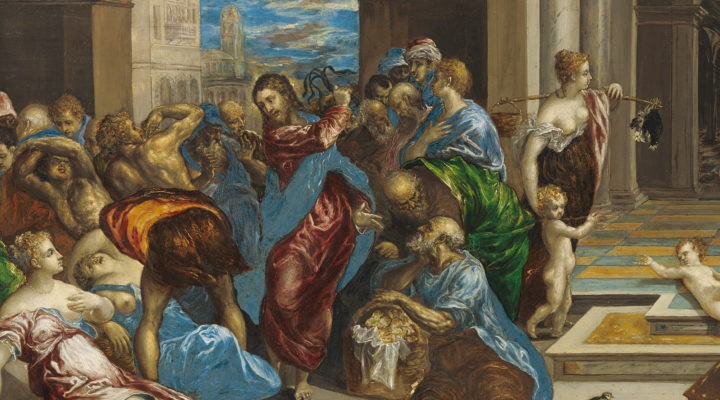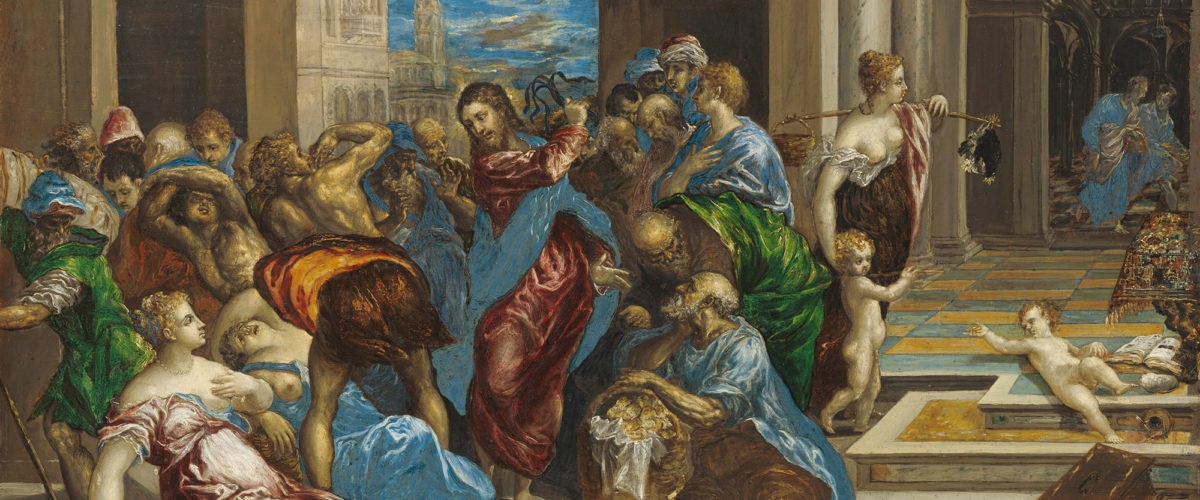I need angry Jesus because, Jesus, I’m angry, too.
I need angry Jesus turning over the tables. I need angry Jesus, whip in hand, driving out injustice. I need angry Jesus to inspire me to flip the tables of oppression in our time, to inspire me to call out and chase out injustice. I need angry Jesus.
I need angry Jesus because, Jesus, I’m angry, too.

Laura Mayo
I live in Houston. There were fewer than 24 hours between reporting that we are the first city in the United State to record every major variant of the novel coronavirus and Gov. Greg Abbott’s announcement of the end of our statewide mask mandate and that all businesses will open fully tomorrow, Wednesday, March 10. More people will get sick. More people will die.
I need angry Jesus because, Jesus, I’m angry, too.
We know from science and health professionals that wearing a mask is vital to helping prevent the spread of COVID. More than 524,000 Americans have died from the pandemic and more than 29 million have been infected. While there has been a slight reduction in the number of cases recently, lifting safety measures now will jeopardize recovery efforts and will result in more cases and more deaths. Our health experts are saying as clearly as possible that now is not the time to relax our vital safeguards. Not in Texas. Not anywhere.
This story of Jesus turning over tables in outrage is Jesus’ second public act, the first in the Gospel of John being Jesus’ first miracle — turning water into wine at the wedding in Cana. From turning water to wine to turning over tables, Jesus’ public ministry is now in full swing. Jesus’ anger is the beginning, the catalyst, the catapult to Jesus’ years of mission and ministry, justice and care, healing and hope-spreading. For John’s telling of the Jesus story, it is Jesus’ anger that propels him forward.
“For John’s telling of the Jesus story, it is Jesus’ anger that propels him forward.”
This table- and system-turning story is not only in the Gospel of John. It is in each of the synoptic Gospels as well, but in the synoptics it is situated at the end, on the Monday of the last week of Jesus’ life. In the synoptic Gospels, Jesus’ public expression of anger is the beginning of the end.
It is not just the location that is different in the synoptic gospels as compared with the Gospel of John. In Matthew, Mark and Luke, after using a whip and turning over tables, Jesus quotes from his religious tradition, echoing the prophets, shouting: “My house shall be called a house of prayer, but you are making it a den of robbers.”
At the temple, you offer sacrifices to God and you pay your tithes. Under Roman occupation, in addition to these acts of worship you also were to pay taxes to Rome at the temple. They sold doves for sacrifice, changed money to the currency needed to pay tithes and taxes. But that is not all that was going on. Jesus accuses the religious leaders of stealing.
In Mark and Luke, Jesus says they are taking from the poor and the widows. The religious authorities were not simply changing money for tithes and taxes, not simply allowing animals to be sold for sacrifice, they were propping up an unjust system, they were taking a cut, they were lining their pockets.
“God doesn’t want worship without justice.”
The Bible is clear: Ritual and worship are meant to empower justice. God doesn’t want worship without justice. Jesus’ demonstration is a critique not only of occupying oppression but also of religious collusion with it.
In Jesus’ day, religious leaders were in collaboration with Roman imperial control. And Jesus, with the words of the prophets ringing in his ears, comes into the temple and brings it to a halt.
There is nothing wrong with prayer and sacrifice; they are commanded in Torah. That is not the problem. The religious leaders have turned the house of God into a hideout for their injustice; they are using the house of refuge not to protect those who are oppressed but to protect themselves. This is not what God wants. God wants justice, love and mercy.
I need angry Jesus because, Jesus, I’m angry, too.
We know something of religious collaboration with an oppressive empire and the anger this collusion causes. But in John there is something more. In John, Jesus, whip in hand, tables toppled, shouts: “Take these things out of here! Stop making my Father’s house a market-place!”
Jesus was a Jew. The heart of Judaism, just as the heart of Christianity, is the care of the widow, the orphan, the oppressed, the neighbor. It seems to me that Jesus is saying, shouting, that care has been replaced by market; religious practice has been turned into transaction; love has been taken over by exchange.
And Jesus says, Stop making God’s realm a marketplace — a place of transaction without regulation, a place where greed is given priority over compassion!
“We know firsthand what happens when profit and deregulation are placed above care for people.”
An organization that should be built on care and justice has become a hiding ground for robbers and a marketplace for profit over care of people. We surely know something about this! No matter where you live, you know about this. And for those of us in Texas who were recently frozen by greed, we know firsthand what happens when profit and deregulation are placed above care for people.
I need angry Jesus. There are tables I need help to topple. There are organizations that should be devoted to care that have become marketplaces.
I need angry Jesus, and I need my anger and I need your anger, because our anger will propel us forward, it will compel us to change, it will demand of us that the systems of oppression and injustice be overturned.
Laura Mayo serves as senior minister of Covenant Church in Houston. She is a graduate of Carson-Newman University and Wake Forest Divinity School, with additional studies at Regent’s Park College of Oxford University. She is active in various interfaith projects and organizations in Houston.
Related articles:
On coronavirus beliefs, ‘It’s evangelical Protestants against everyone else’
The first thing you think when you get COVID-19 | Opinion by Mark Wingfield
While some try to politicize wearing face masks, for me it’s a spiritual practice | Opinion by Clare Johnson


